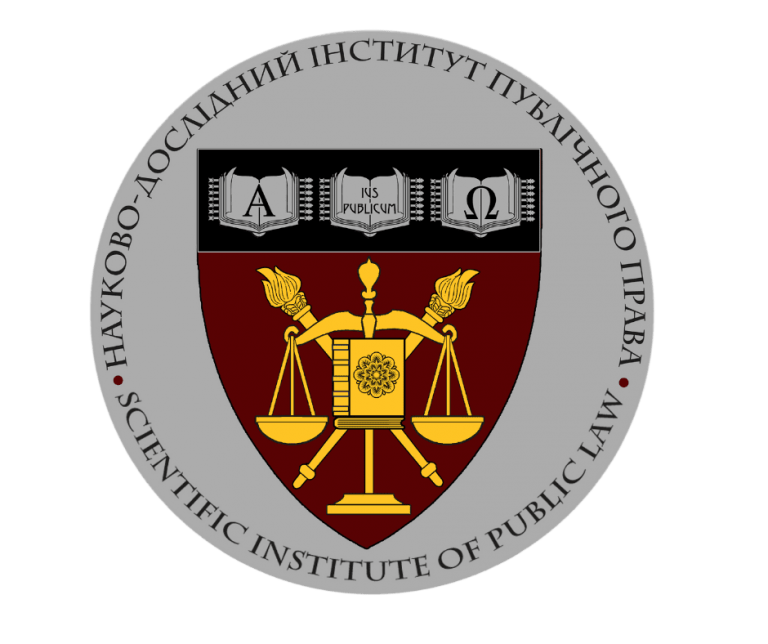DIRECTIONS OF IMPROVING THE MEANS OF ADMINISTRATIVE AND LEGAL ENSURING THE ACTIVITIES OF THE STATE BUREAU OF INVESTIGATIONS IN UKRAINE
DOI:
https://doi.org/10.32844/ibpala-2024-2.16Keywords:
service, investigation and detection of crimes, quality standards, specialized law enforcement institutions, training, retrainingAbstract
The relevance of the article lies in the fact that the creation of a new state institution within the state apparatus of Ukraine, the change of the status of the latter from a central body of executive power with a special status to a law enforcement body, and therefore its occupation of a special place within the law enforcement system of Ukraine and the determination of priority areas of activity , produces the need for a detailed doctrinal study of the latter. It should be noted that the administrative and legal support of the activities of the State Bureau of Investigation remains a poorly researched issue by representatives of the domestic legal doctrine. At the same time, the systematic approach to the study of the relevant issues made it possible to establish certain problematic aspects of this mechanism. Thus, today the issue of finding possible ways to improve the administrative and legal support of the State Bureau of Investigation seems to be relevant. It is emphasized that the legal regulation of the activities of the State Bureau of Investigation can be interpreted as establishing the limits of activity with the help of legal norms, as well as the rules of conduct of officials and officials of the State Bureau of Investigation. In this aspect, legal regulation should be interpreted broadly, namely, both legislative, by-law, and departmental regulation should be considered within its limits. Analyzing the problematic issues of the functioning of the State Bureau of Investigations, we will establish that, in our opinion, the organizational principles of the functioning of the State Bureau of Investigations, as well as the issues of interaction of this institution with other subjects of public administration, require detailed legal regulation. That is why further legislative initiatives should be aimed at settling the above-mentioned issues. It was determined that in order to provide professional personnel, it is also appropriate to reform university legal education in the first place and to introduce the possibility of studying anti-corruption studies at law faculties and institutes. Reforming higher legal education in this way will provide an opportunity to prepare professionals for the relevant law enforcement agencies with special status from the early stages, which will greatly facilitate the recruitment process for law enforcement agencies, the State Bureau of Investigation in particular.
References
Komashko, V.V. (2014). Osoblyvosti orhanizatsiino-pravovykh osnov funktsionuvannia Derzhavnoho biuro rozsliduvan yak odniiei z novel Kryminalnoho protsesualnoho kodeksu [Peculiarities of the organizational and legal foundations of the functioning of the State Bureau of Investigation as one of the novelties of the Criminal Procedure Code]. Visnyk AMSU. Seriia: «Pravo». № 1 (12). рр. 132–138. (in Ukrainian).
Moiseiev, M.S. (2018). Administratyvno-pravove rehuliuvannia diialnosti Derzhavnoho biuro rozsliduvan Ukrainy [Administrative and legal regulation of the activities of the State Bureau of Investigation of Ukraine]. Visnyk NTUU «KPI». Politolohiia. Sotsiolohiia. Pravo. Vyp. 3. рр. 138–141. (in Ukrainian).
Alekseev, S.S. (1995). Teoryia prava [Theory of law]. К. : BIeK, 320 р. (in Ukrainian).
Kerimov, D.A. (2003). Metodolohiia prava. Predmet, funktsii, problemy filosofii prava [Methodology of law. Subject, functions, problems of the philosophy of law]. K.: Yurinkom. 241 р. (in Ukrainian).
Stratehichna prohrama diialnosti Derzhavnoho biuro rozsliduvan na 2017–2022 rr. [Strategic Program of the State Bureau of Investigation for 2017–2022]. URL: https://dbr.gov.ua/strategic№a-programa-dial№osti (in Ukrainian).
Shemshuchenko, Yu.S. (red.). (2012). Velykyi entsyklopedychnyi yurydychnyi slovnyk [Large encyclopedic legal dictionary. Under the editorship Acad]. NAN Ukrainy. 2-he vyd., pererobl. i dop. K. : Vyd-vo «Iurydychna dumka», 1020 р. (in Ukrainian).
Zaichuka, O.V., Onishchenko, N.M. (red.). (2006). Teoriia derzhavy i prava [Theory of the state and law]. Akademichnyi kurs : pidruch. K. : Yurinkom Inter, 688 р. (in Ukrainian).
Yunokas V. Sluzhba spetsialnykh rozsliduvan ta borotba z koruptsiieiu u Lytvi [Special Investigation Service and the Fight against Corruption in Lithuania]. Chynovnyk. 2002. № 5 (2). URL: http://www.law.edu.ru/doc/document.asp?docID=1145978 (in Ukrainian).
Roberts, David J. (2006). Law Enforcement Tech Guide for Creating Performance Measures That Work: A Guide for Executives and Managers. Washington, D.C.: U.S. Department of Justice Office of Community Oriented Policing Services, 168 p. (in English).
Her Majestys Inspectorate of Constabulary. State of Policing. The Annual Assessment of Policing in England and Wales 2015. URL: http://www.justiceinspectorates.gov.uk/hmic/wp-content/uploads/state-of-policing-2015.pdf (in English).
Yosyfovych, D.I. (2013). Poriadok formuvannia ta struktura Tsentralnoho antykoruptsiinoho biuro Respubliky Polshcha [Formation procedure and structure of the Central Anti-corruption Bureau of the Republic of Poland]. Mytna sprava. № 4 (88). рр. 92-97. (in Ukrainian).
Hrechaniuk, R. (2015). Pidhotovka ta materialne zabezpechennia sluzhbovtsiv spetsialnoho antykoruptsiinoho orhanu Respubliky Polshcha [Training and material support of employees of the special anti-corruption body of the Republic of Poland]. Naukovyi chasopys Natsionalnoi akademii prokuratury Ukrainy. № 1. рр. 76–83. (in Ukrainian).
Fedorenko, O.I. (2010). Osoblyvosti pidhotovky politseiskykh kadriv u SShA [Peculiarities of training of police personnel in the USA]. Visnyk Natsionalnoi akademii oborony. № 5 (18). рр. 109–113.
Skulysh, Ye.D. (2013). Problemni pytannia stvorennia Derzhavnoho biuro rozsliduvan [Problematic issues of the creation of the State Bureau of Investigation]. Visnyk Natsionalnoi akademii pravovykh nauk Ukrainy. № 4 (75). рр. 215-215. (in Ukrainian).




